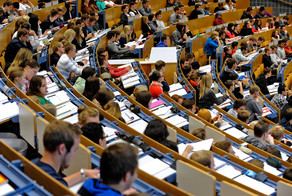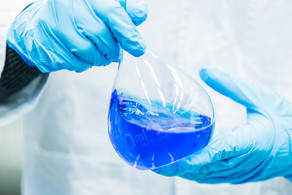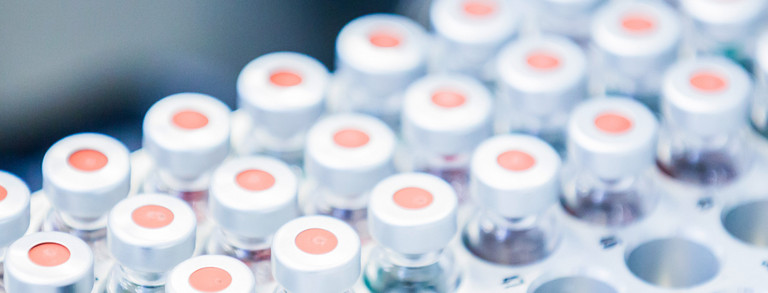PI filters:
List of current projects
Sadowski Group
Oil in water emulsions can effectively be used as delivery systems for poorly water soluble drugs. These emulsions are stabilized by surfactants. This project develops a suitable modeling approach for those systems utilizing an aggregation model and PC-SAFT. This will serve as a predictive method capable of describing the complex liquid-liquid phase equilibria in aqueous oil/surfactant solutions.
Many active pharmaceutical ingredients (APIs) suffer from low aqueous solubility, limiting their bioavailability. Bioavailability can be improved by dissolving the API in a polymer, yielding so-called amorphous solid dispersions (ASDs). This project aims at investigating the influence of coating materials, temperature and relative humidity (RH) on the stability of coated ASDs during storage.
The bioavailability of active pharmaceutical ingredients (API) is often limited by their low aqueous solubility. The API bioavailability can be improved by dissolving the API in a polymer matrix leading to so-called amorphous solid dispersions (ASDs). This project investigates ASDs using polymer salts as matrix formers. It is performed in close cooperation with the group of Lynne Taylor from Purdue University.
Brandenbusch group
Combining active pharmaceutical ingredients (API) and Polymers in amorphous solid dispersions (ASD) enhances aqueous solubility and release of new APIs. However, ASDs with higher drug load may release the API and Polymer incongruently related to amorphous-amorphous phase separation during dissolution. Ternary ASDs containing surfactants increase the drug load at which congruent release is achieved, the so-called ‘Limit of congruency’ (LoC).
Thermodynamic models are an essential part of today’s process development and optimization. Applications span across all fields and disciplines in the chemical, biotech and pharmaceutical industry. With the exception of ab-initio and purely predictive approaches, thermodynamic models in general require pure component and/or binary interaction parameters, fitted to experimental data.
Held group
The solvent and the type and amount of the catalyst strongly influence the equilibrium and kinetics of chemical reactions. The aim of this project is to predict the influence of strongly non-ideal solvent mixtures, the catalyst and the pH-value on the reaction equilibrium and kinetics of acid catalysed esterification reactions with ePC-SAFT.
One research focus of the Held group at the Lab of Thermodynamics is product purification and (bio)chemical conversion using rotating devices that utilize centrifugal forces for process intensification. Rotating Packed Beds (RPBs) are employed for this purpose.
The high viscosity of carbohydrate-rich residue streams causes difficult reaction conditions, especially due to poor mass transfer to the catalyst surface. Therefore, this project focuses on the investigation of rotating packed beds to increase mass transfer in the reaction of carbohydrate-rich residue streams.
Kühl group
This project aims to increase the efficiency of regenerative (gas) cycles by developing and optimizing regenerators with axially varying matrix structures. Therefore, analytical and numerical models are applied to the design and the optimization of such regenerators, the performance of which is experimentally investigated afterwards.







